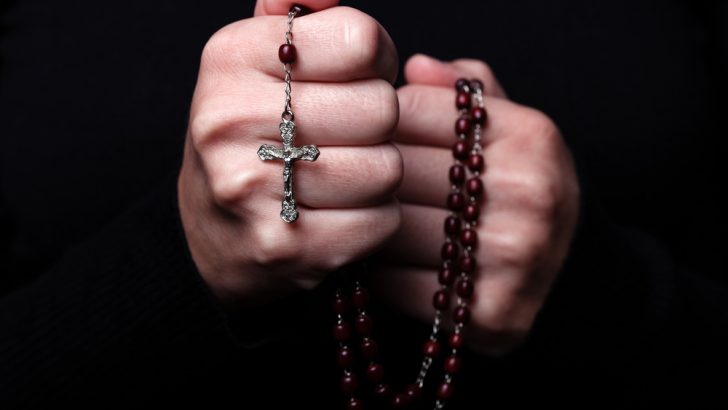One of the country’s large general hospitals recently made a small but very significant change. It renamed all of its wards. Previously the wards had saints’ names: ‘St Michael’s Ward’, ‘St Brigid’s Ward’, etc. Such names were commonplace in many hospitals around Ireland and I suppose the practice of naming wards – and indeed whole hospitals – after saints underscored the Christian ethos of those institutions.
Interestingly, the change made to the ward names in the hospital mentioned above simply involved dropping the ‘St’ from the title, so now the wards are known as ‘Michael’s Ward’ and ‘Brigid’s Ward’, etc. I understand that this name-changing exercise, which came when the hospital drew down funding for new signs, cost in the region of €35,000.
One is left to wonder and speculate about the thinking and motivation behind the move. Had there been some complaint from patients or staff from other faiths? Did they feel discriminated against by having to be treated or work in a location with such an explicit Christian name? Is the name change motivated by a desire to be more ‘inclusive’ or is it simply another example of a creeping secular agenda which seeks to chip away at our Christian heritage? Whatever the motivation one wonders how the hospital authorities can justify a spend of this proportion when there is such an acute shortage of money in the health service budget for the provision of beds and staff to treat patients.
The hospital name-changing exercise is just one more example of the apparent relentless campaign to not only undermine our Christian heritage, but also to relegate the spiritual and religious aspects of Irish community life to the margins.
It is interesting to note that Britain’s Queen Elizabeth II in her Christmas speeches goes out of her way to speak about the story of Jesus and even invokes Catholic saints as she did last Christmas.
However, our current president seems equally determined to avoid using specific religious language in his Christmas and St Patrick’s Day messages.
In his recent message for our national feastday, President Higgins described St Patrick as being an immigrant, as being trafficked, as coming back to Ireland but absolutely no mention of the faith or religious dimensions of his mission.
Ironically, when the president travels abroad, as he did recently to South America, he invariably meets up with Irish missionaries who have made such an enormous contribution to the development of so many countries. There is a growing feeling among many Irish Catholics and indeed, people of faith in general, that our president contributes significantly to the undermining of the religious dimension of our nation.
Reaction
A final example is the reaction to the recent death of Cardinal Desmond Connell. Desmond Connell was the first cardinal in Dublin since Edward MacCabe died in 1885. His recent death merited only a one sentence expression of sympathy from Áras an Uachtaráin. The president was not alone among our national leaders who shunned the cardinal’s funeral. Contrast that with the effusive presidential eulogies for poets and footballers not to mention the canonisation of Fidel Castro.
For the millions of people of faith in this country, who incidentally also pay their taxes and contribute to the funding of our schools, hospitals and pay for our public representatives and our public broadcasters, will someone somewhere shout ‘stop’ to this constant undermining of that which is precious to us?
A Lenten prayer for the Christian Community
Lord,
Take us on our journey
From where we are to what you want us to be;
So that we become a community
Where all are welcomed and no one is excluded,
All are valued and no one is made to feel inadequate,
All are forgiven and no one is ashamed to belong,
All are encouraged and no one is too hurt to come among us…
Let us go gladly on the journey towards Easter-
The journey towards death and resurrection.
Let us journey in the peace and power of the Spirit.
– Ruth Harvey
The Preacher’s dilemma: Last Sunday we celebrated Mothers’ Day and one parish priest decided he would preach about the glories of motherhood. Having delivered what he considered was an eloquent homily for the occasion the priest was confronted at the door of the church after Mass by a very irate woman who was obviously also a mother: “Father, I wish I knew as little about being a mother as you do!”



